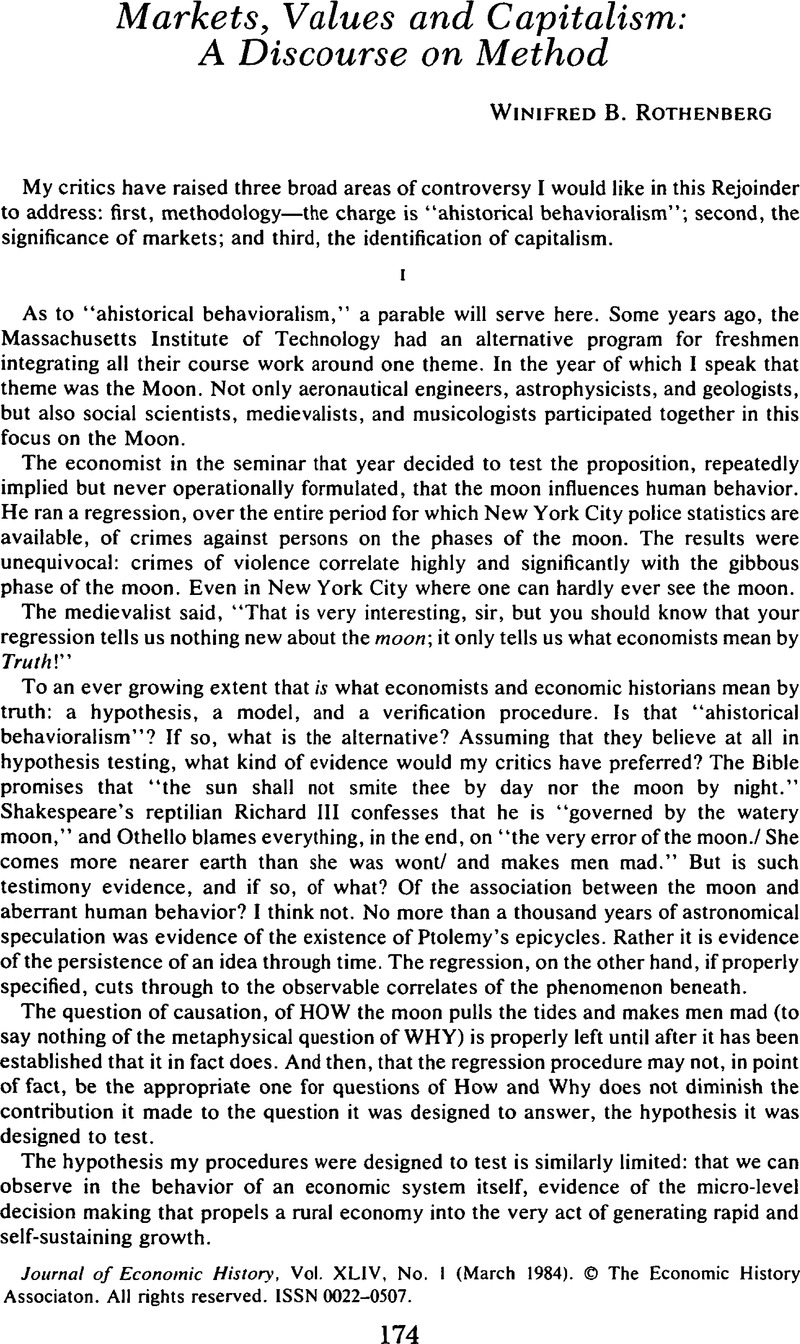No CrossRef data available.
Article contents
Markets, Values and Capitalism: A Discourse on Method
Published online by Cambridge University Press: 03 March 2009
Abstract

Information
- Type
- Notes and Discussion
- Information
- Copyright
- Copyright © The Economic History Association 1984
References
1 The phrase is used by Raymond Firth in his introductory essay, “A Viewpoint from Economic Anthropology”, in Firth, Raymond and Yamey, B. S., eds., Capital, Saving and Credit in Peasant Societies (Chicago, 1964), p. 31.Google Scholar
2 Ibid., pp. 22, 28.
3 Nash, Manning, Primitive and Peasant Economic Systems (San Francisco, 1966), p. 14.Google Scholar
4 Statement of Governor Winthrop at the civil trial of Anne Hutchinson in Boston, 1637.Google Scholar
5 Smith, Daniel Scott, Population, Family and Society in Hingham, Massachusetts, 1635–1880. Ph.D. dissertation, University of California, Berkeley, 1973.Google Scholar
6 The phrases in quotation marks are taken from the Comment of Rona Weiss, this JOURNAL, 43 (June 1983), 475–78, and from the Comment of Michael Bernstein and Sean Wilentz to which this essay of mine is a rejoinder.Google Scholar
7 For a fuller discussion of the inadequacy of probate data for production functions, see my “Farm Account Books: Problems and Possibilities”, Agriculiural History (April 1984, forthcoming).Google Scholar
8 Sokoloff, Kenneth, “Productivity Growth in Manufacturing During Early Industrialization: The American Northeast, 1820–1860”, paper delivered at the conference of the Social Science History Association, Washington, D.C., 10 30, 1983.Google Scholar
9 Daniel Scott Smith, in a private communication for which I am grateful, has helped me to see how a Marxist definition of capitalism might be formulated operationally: “There are three kinds of actors—employers of labor, the self-employed, and the employed (wage workers). We say capitalism is happening when the final group is expanding relative to the total, especially to the second group”. The trouble is that by that definition my hunch is that the farm sector in Massachusetts would scarcely be capitalist even today, whereas Soviet agriculture would be!Google Scholar

